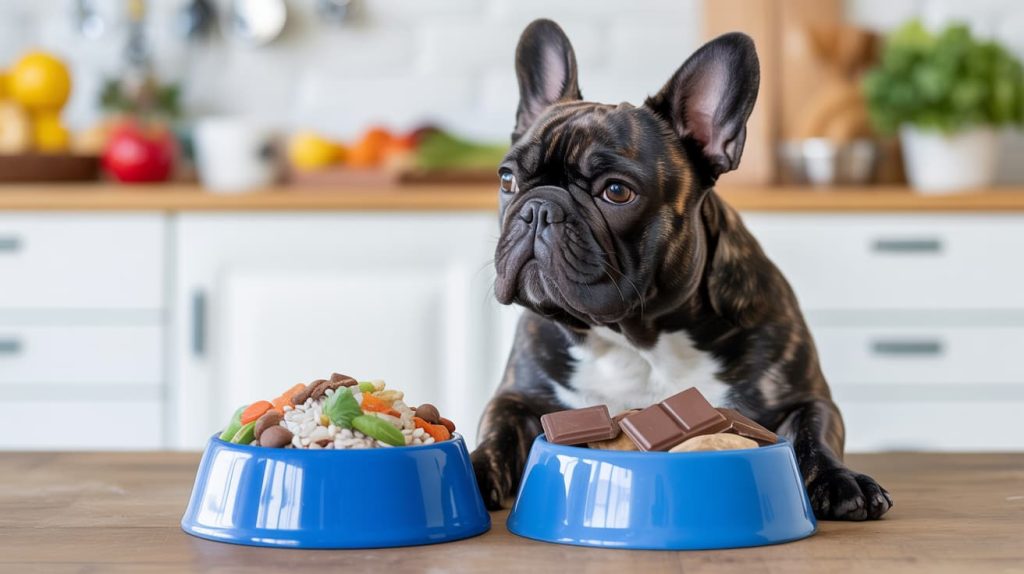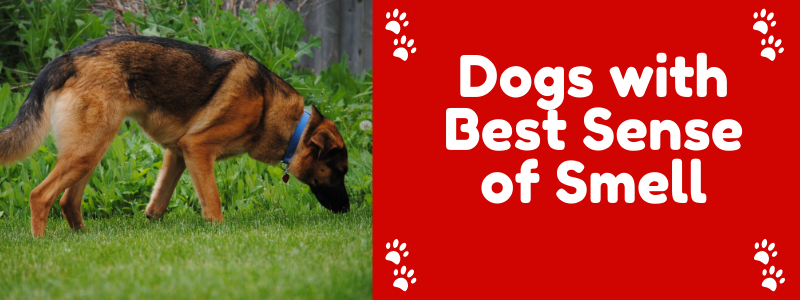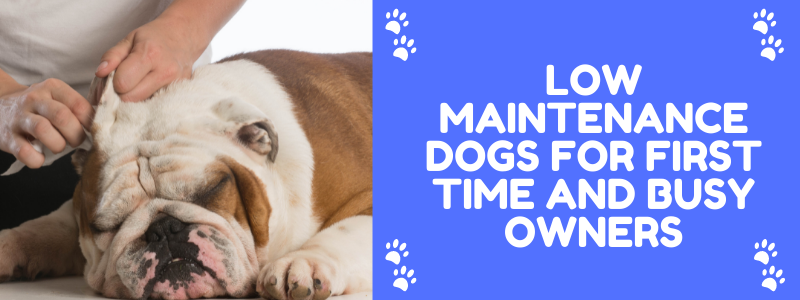If you’ve got a French Bulldog or you’re planning to get one you’ve probably already noticed something: these little squish-faced guys LOVE food. And honestly, who can blame them? Those big eyes staring at you like you’re the snack dispenser of life… impossible to resist.
But here’s the deal: French Bulldogs are notoriously picky and sensitive eaters. Feed them the wrong thing, and you’re in for gas, upset stomachs, or even bigger health issues. Feed them right, and you’ve got a happy, healthy, wiggly little companion.
In this guide, I’m breaking down exactly what your Frenchie should eat, what to avoid, and some practical tips to keep their diet top-notch.
1. High-Quality Protein is a Must
Protein is the foundation of any dog’s diet, and French Bulldogs are no exception. Look for foods with real meat as the first ingredient think chicken, turkey, or beef.
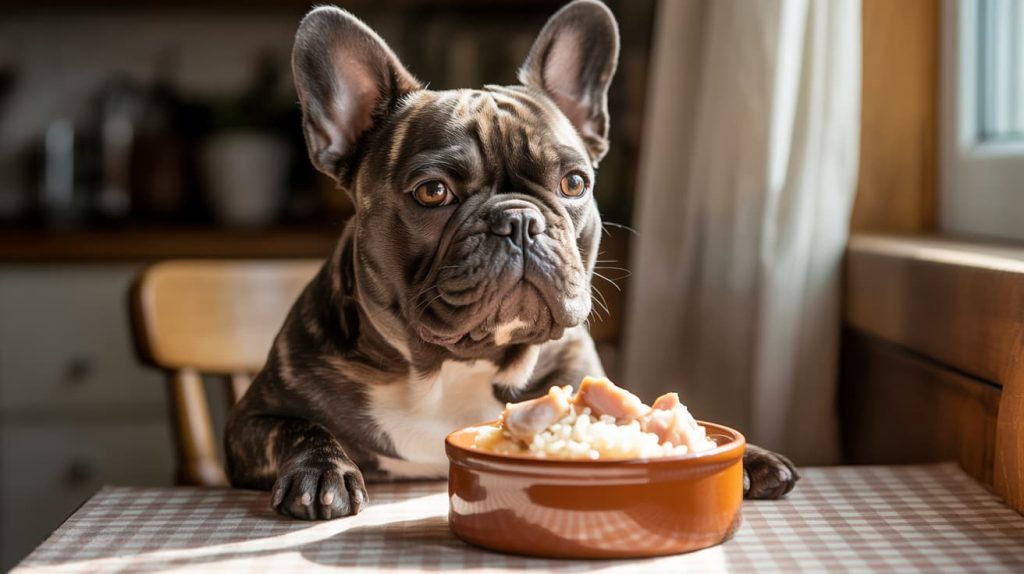
Why it matters:
- Supports muscle growth and maintenance
- Helps keep energy levels stable
- Keeps their skin and coat shiny
Pro tip: Avoid foods that just list “meat by-products” you want the real deal, not mystery meat.
2. Carbs for Energy, But Keep It Moderate
Frenchies don’t need a ton of carbs, but some can help fuel their little adventures. Good sources include:
- Brown rice
- Sweet potatoes
- Oats
Why not too much: Too many carbs can lead to weight gain, which is a big problem for Frenchies because extra pounds stress their joints and can worsen breathing issues.
3. Healthy Fats for a Shiny Coat
A French Bulldog’s skin can be sensitive, so including healthy fats in their diet is key. Omega-3 and Omega-6 fatty acids help:
- Reduce inflammation
- Improve coat health
- Support brain function
Sources to look for: fish oil, flaxseed, or chicken fat. FYI, some dog foods already have these built in.
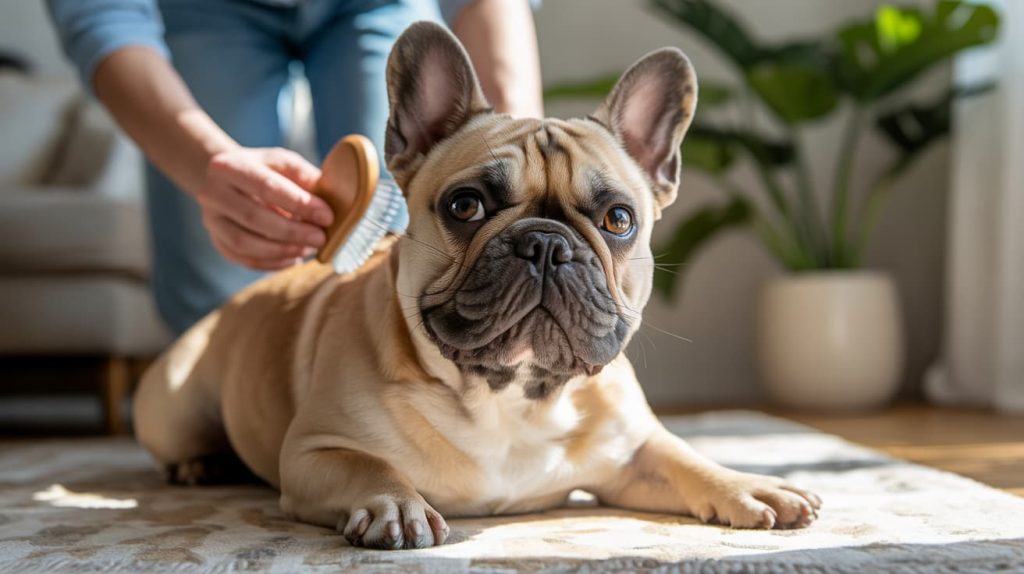
4. Avoid Toxic Foods
Not everything humans eat is safe for Frenchies. Here’s a short list of things you should never feed your pup:
- Chocolate 🍫 (the ultimate doggy no-no)
- Grapes & raisins
- Onions & garlic
- Alcohol
- Xylitol (found in sugar-free gum and sweets)
Rhetorical question: You might want to sneak a bite, but trust me don’t. One small mistake can lead to serious illness.
5. Monitor Portions Carefully
French Bulldogs love to eat, and they don’t exactly self-regulate. Overfeeding is a common mistake.
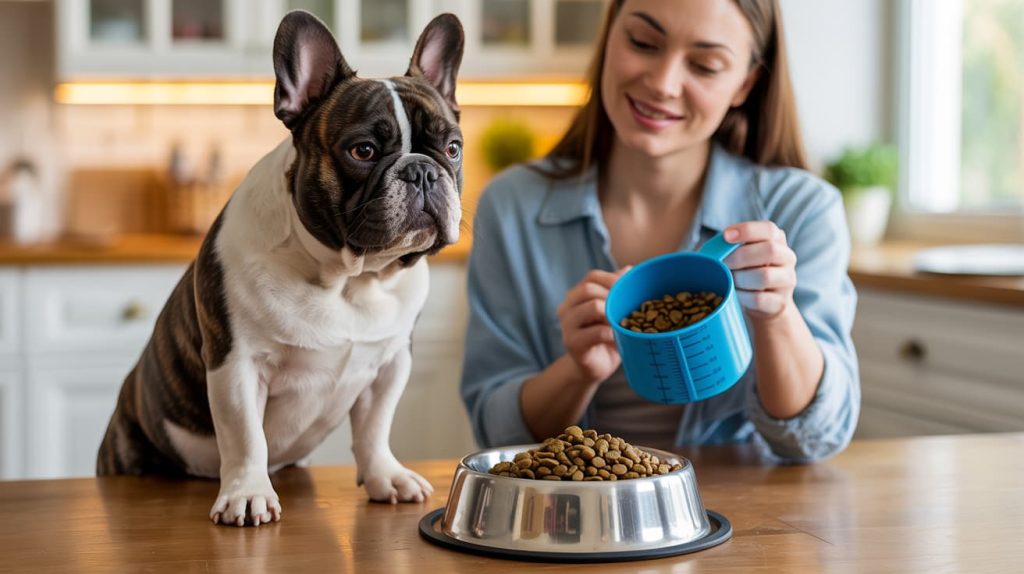
Tips for portion control:
- Follow your dog food brand’s serving guide
- Measure meals with a cup instead of guessing
- Break meals into 2–3 small servings per day instead of one big meal
A healthy weight keeps them breathing easier, protects their joints, and makes training (and cuddling) more comfortable.
6. Treats in Moderation
Treats are great for training and bonding, but Frenchies have a sensitive digestive system. Too many treats = weight gain and upset tummies.
Healthy treat options:
- Baby carrots
- Apple slices (no seeds)
- Small pieces of cooked chicken
- Freeze-dried liver
Avoid: Cheese piles, sugary snacks, or anything heavily processed.
7. Watch for Allergies
French Bulldogs are prone to food allergies. Common signs include:
- Itchy skin or rashes
- Chronic ear infections
- Upset stomach
Preventive tips:
- Introduce new foods slowly
- Keep a food diary to track reactions
- Consult your vet if symptoms persist
Some Frenchies do well on grain-free diets, while others do better with certain proteins. It’s a bit trial-and-error but worth it for a happy pup.
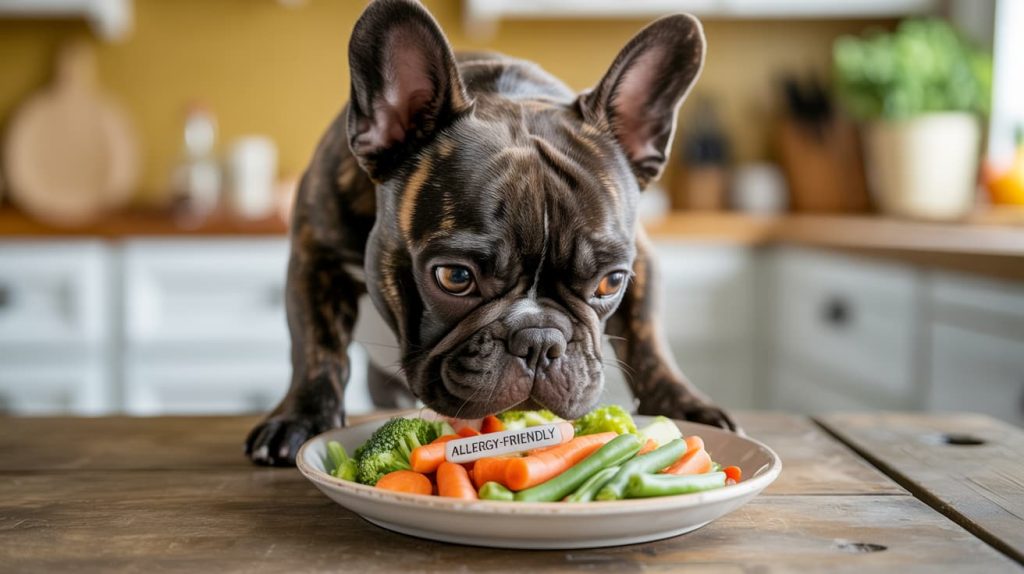
8. Fresh Water is Essential
This one’s simple but easy to forget: always provide fresh, clean water. Frenchies can overheat easily, so water is critical to keeping them hydrated, cool, and healthy.
Bonus tip: Some Frenchies are picky about water bowls. Stainless steel or ceramic bowls usually work best they’re easy to clean and less likely to harbor bacteria.
9. Homemade vs. Commercial Diets
Some owners like to make homemade meals for their Frenchies. This can be great if done correctly but it requires careful planning to ensure balanced nutrition.
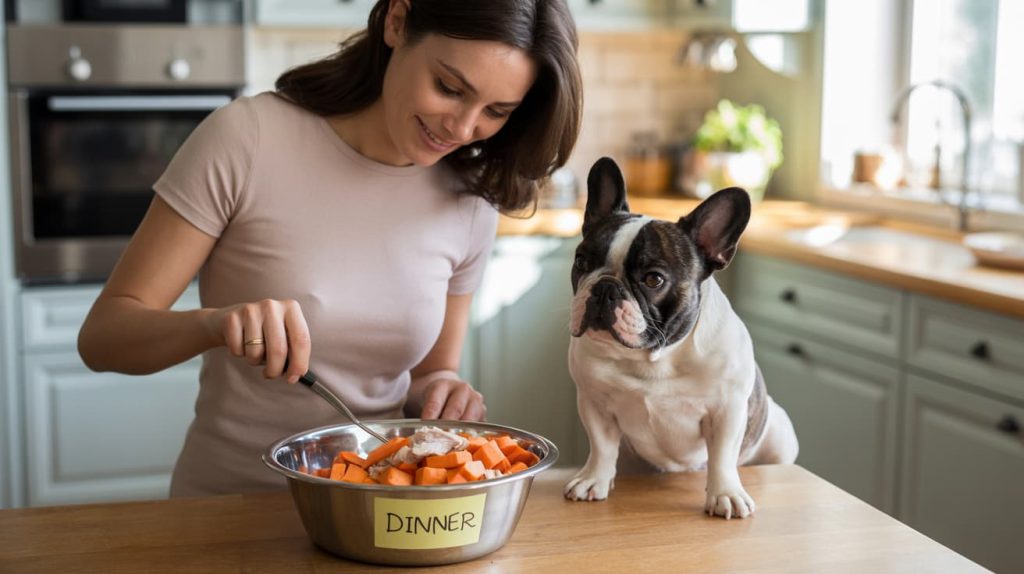
DIY diet tips:
- Include lean protein, vegetables, and some carbs
- Avoid toxic foods
- Consider supplements if needed (vitamins, minerals)
Commercial food tip: Premium kibble or wet food is formulated to meet nutritional needs and is often safer for busy owners. A mix of both can work well too.
10. Consult Your Vet Regularly
No diet guide is complete without a reminder: your vet is your best friend when it comes to nutrition. They can help:
- Identify allergies or sensitivities
- Recommend portion sizes
- Suggest supplements if necessary
Rhetorical question: Sure, you think you’ve got this, but wouldn’t you rather double-check with a pro?
Conclusion
Feeding your French Bulldog the right diet is all about balance, quality, and observation. Keep protein high, carbs moderate, fats healthy, and treats controlled. Avoid toxic foods, watch for allergies, and always provide fresh water.
French Bulldogs may be little, but their personalities and appetites are huge. By giving them the right fuel, you’ll keep your squishy little buddy healthy, happy, and full of wiggles for years to come.
Remember: a well-fed Frenchie is a happy Frenchie… and a happy Frenchie makes your life way more fun.

